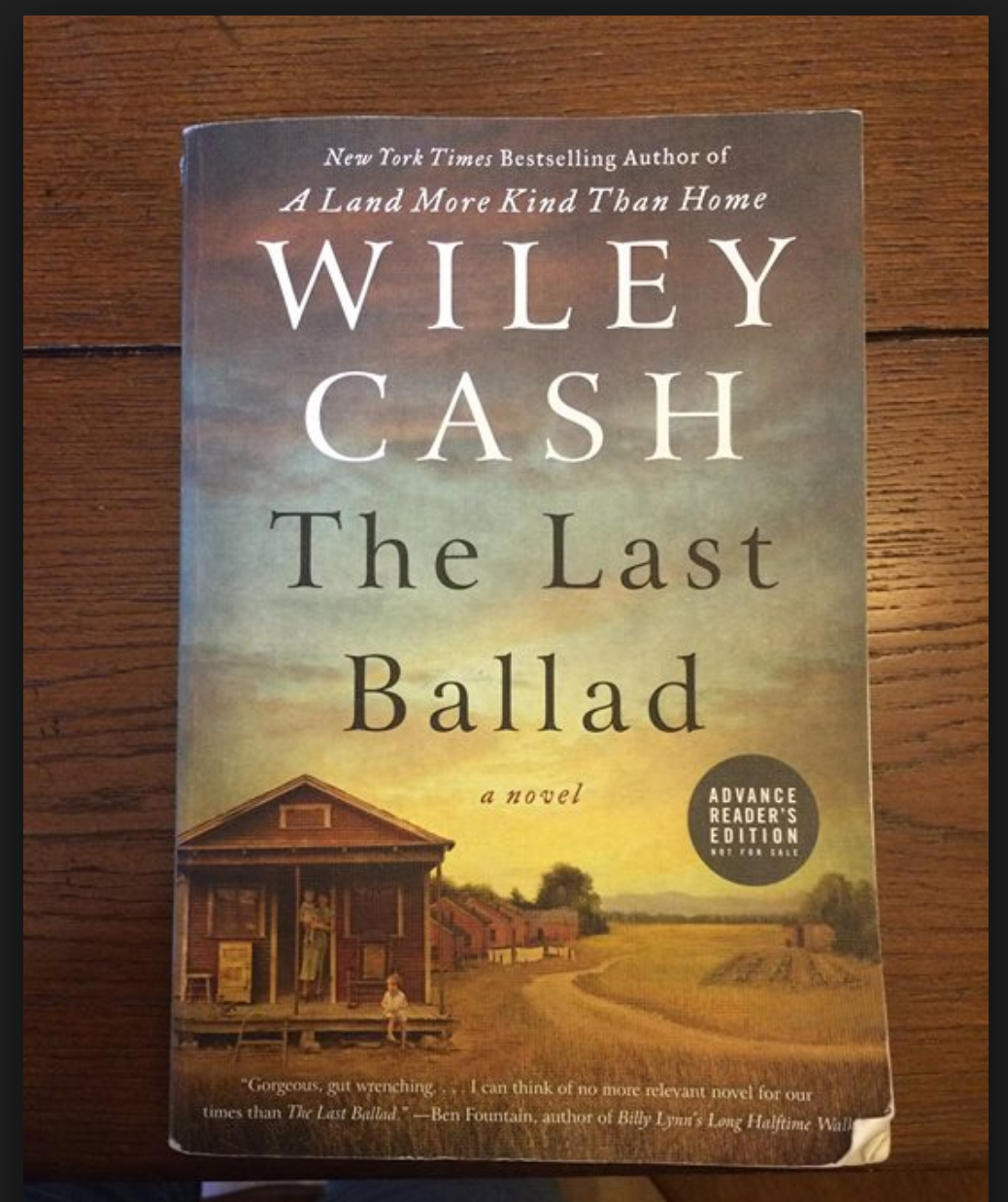by Brian Lampkin
On Thursday, October 19, at 7:00 pm, the novelist Wiley Cash will return to Scuppernong Books to read from his latest work The Last Ballad. This event is co-sponsored by Scuppernong and Greensboro Bound. Author Bryant Simon will also read from his excellent nonfiction book, The Hamlet Fire: A Tragic Story of Cheap Food, Cheap Government, and Cheap Lives.
In anticipation of this event, we asked Wiley a few questions.
GB: I’ve heard you talk about how responsible you felt to the real historical figures your characters in The Last Ballad are based on, particularly Ella May. How do you feel about that responsibility now that the book is out in the world? Do you want to write more “historical” novels?
WC: I didn’t consciously think of this as an historical novel while writing it. Of course I knew I was writing about a particular moment in 1929, but my first novel was about a particular moment in 1986, and my second was about a particular moment in 1998. The Loray Mill strike is a real event, but I had digested the facts of it so wholly that when I sat down to write the novel, it felt as if the story were coming from me. I gave very little thought to its being historical. It felt urgent and real, and that made it feel present in a strange way. I don’t know that I’ll consciously choose to write or not write another historical novel, but I think I’ll always be conscious, when trying to delve into an historical moment, to do so in a way that makes it feel real for me and the reader.
GB: You let the readers know up front that Ella May will die. Why did you make that choice?
WC: I wanted the reader to carry the trauma of her death throughout the experience of reading the book. I wanted every moment of struggle and triumph and bravery and fear to be colored by the reader’s knowledge that someone would murder her because she dared take a stand for what she believed was right. All she was asking for was a living wage so that she could keep herself and her children alive. I wanted to the reader to spend the entire 400 pages knowing that she was killed for daring to demand such a small thing.
GB: There are some evil men in your book, some without any redeeming characteristics. Can you talk about that in terms of labor history?
WC: I truly believe that the root of evil is greed, and labor laws were created in response to greed. A few of the characters in my novel are animated by greed and violence. It’s their language, their worldview, and their understanding of humanity. It colors their daily lives. It’s the responsibility of the American government, and by extension American democracy, to protect citizens from all dangers, foreign and domestic. Greed is one of those clear and present dangers.
GB: I love the map on the endpapers. Did you have any say in that? Any say in jacket design?
WC: I’m really fortunate in that I have an editor and publisher who are willing to listen to my ideas, however wrong-headed they may be. I share a publisher with Paulette Giles, whose News of the World features a gorgeous map on the endpapers. I saw that book and said, “I want one of those!”
The jacket was designed by a woman named MumTaz Mustafa, who also did the jacket design for the paperback of A Land More Kind than Home. She’s brilliant. Her covers are easily my favorites of the covers I’ve had.
GB: What makes a literary festival an exciting experience for writers? What are the pitfalls of festivals for writers?
WC: I love literary festivals. It’s such a great opportunity to get to know a local place, what the readers like, what the bookstores like to hand sell. And I love hearing other writers speak, and I love being in the audience while they field questions.
While I love festivals, they can feel a little isolating sometimes. You fly into a city you don’t know well. You check into a hotel. You open the program and see all the names of writers you admire. And then you open your door and look out into the hallway and think, “Where the hell is everyone?” And then you go down to the bar alone and have a drink and wait for people to show up.
GB: Ever read much John Sayles?
WC: No, but I will now.

